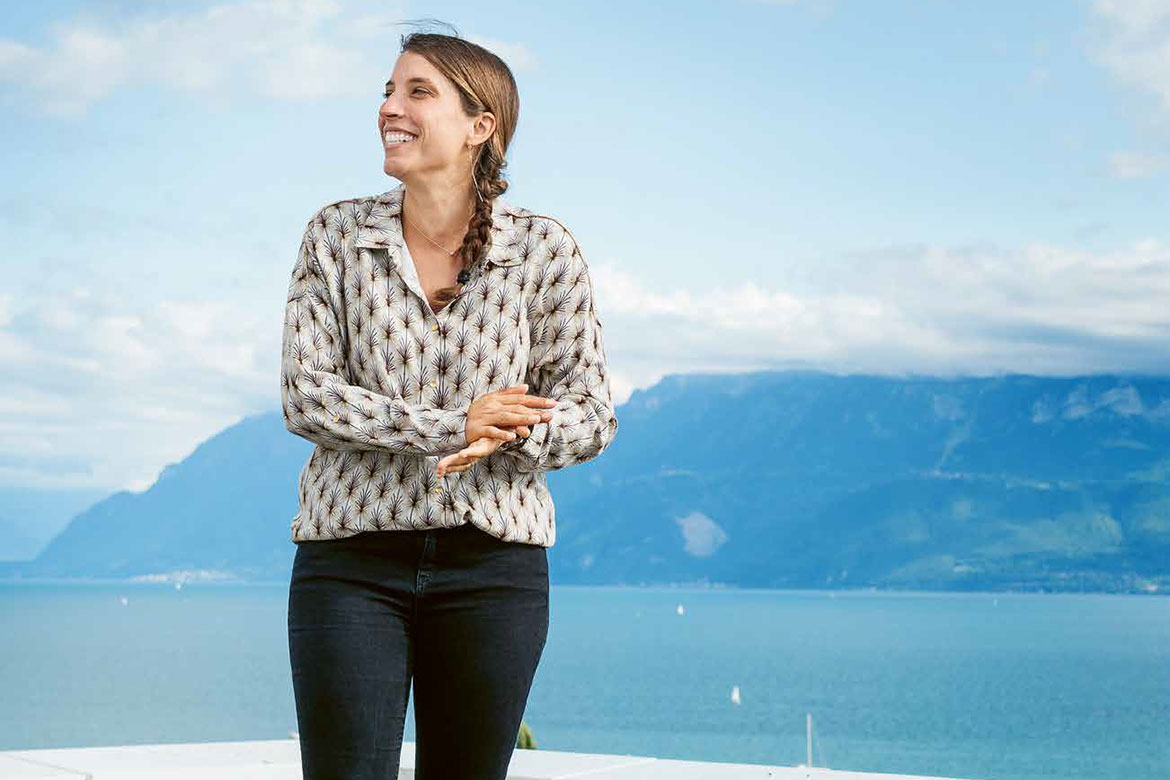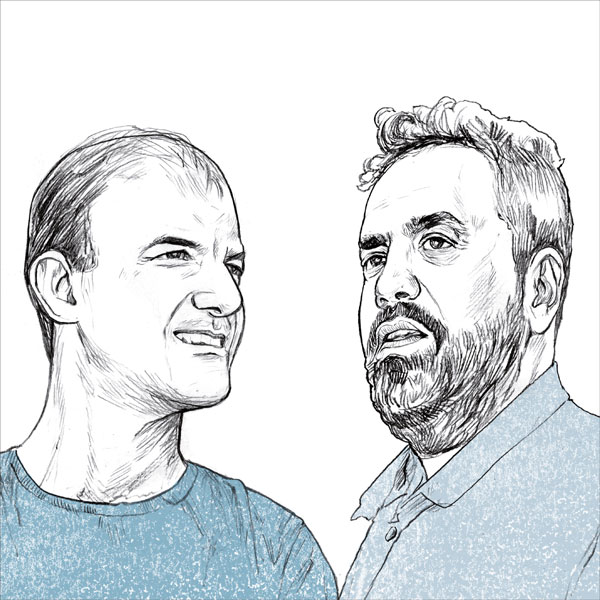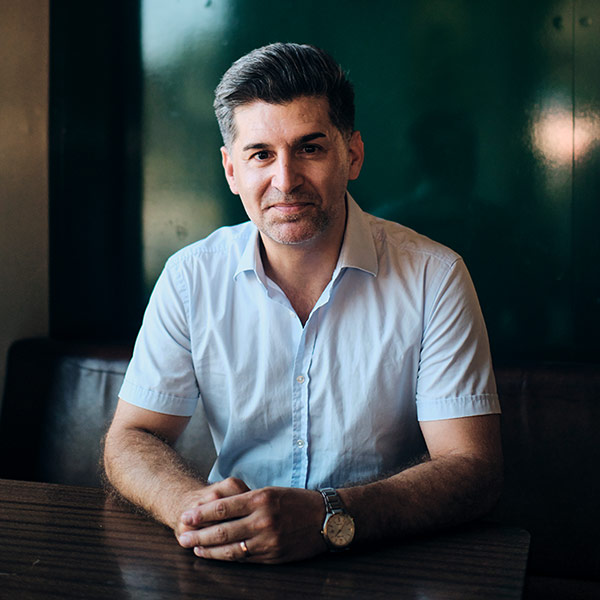Nutrition research
The odyssey of a sweetener study in Iran
Sugar can make us sick. A joint team from Iran and Switzerland wanted to conduct a clinical study to clarify the effects of sugar substitutes on our health. It was a good idea – but it became mired in the turmoil created by economic sanctions.

The sugary diet typical of the West is increasingly common in Iran, but international economic sanctions are preventing Western research funds from crossing the border. | Photo: Kaveh Kazemi / Getty Images
December 2022 was really a low point for Hamidreza Raeisi-Dehkordi. That was when he found out just how badly things can end up when you’re planning your research. He’s from Iran, had already completed his master’s in nutritional science in the city of Yazd, some 250 kilometres southeast of Isfahan, and had meanwhile spent two years preparing a clinical study for his doctoral thesis. But then everything fell apart. He’d wanted to study the effect of sweeteners on menopausal women who were severely overweight. Together with his supervisor for his master’s thesis, he submitted a grant application for the SNSF’s ‘Swiss Programme for International Research by Scientific Investigation Teams’ (SPIRIT) that was set up to promote collaboration with researchers in low and middle-income countries and has a particular focus on women.
The plan was for him to come to Bern in February 2021 to carry out the scientific analysis for his project. But he didn’t get a visa due to the Covid pandemic. “It was a tough situation. I was working for free, living with my parents, and I had to do the obligatory draft, as I did not immediately have a job after my education”. He finally got his visa in December of that year. He prepared everything over a total of two years spent in both Iran and Switzerland: the study protocol and the approvals from his ethics committee and from the University of Yazd. But it was not to be.
And yet this study would have been extremely relevant for all kinds of reasons. Excessive sugar consumption across the world is leading to tooth decay, obesity and a whole range of chronic diseases such as type 2 diabetes. This is why the food industry and consumers alike are turning to sweeteners such as aspartame, saccharin and stevia. But there is controversy about their effect on our health. In 2024, aspartame was even classified as ‘possibly carcinogenic’ by the World Health Organization (WHO), which caused quite a commotion. We simply lack solid knowledge on the topic. We know about the metabolic processes involved, although mainly from animal studies whose transferability to humans is limited. And current observational studies of humans have not been able to clarify the relationship between cause and effect.
The Iranian city of Yazd is an ideal site for a study
“We know that type 2 diabetes is associated with obesity”, says Angéline Chatelan, an assistant professor in nutritional epidemiology at the Geneva School of Health Sciences. But it remains unclear what role sugar plays in this, and whether sweeteners are really better. This is why, together with Raeisi-Dehkordi and members of her research team, she designed the clinical study in question. Their aim was to test the effects of aspartame, saccharin, stevia and normal household sugar on gut bacteria, weight, blood sugar levels, and markers for cardiovascular health and sex hormones. A total of 160 obese Iranian women who were going through menopause were to be given one bottle per day of the respective sweetener assigned to them, dissolved in water.
Women are generally underrepresented in clinical trials, simply because it’s often easier to conduct them with men. This also has to do with hormones, as Chatelan explains using the example of their abortive study. “We need to differentiate between the effect of the menstrual cycle and the effect of the sweetener. Many women also take a contraceptive pill”. Coordinating the collection of blood, urine and stool samples with each participant’s menstrual cycle would place too great a burden on hospital personnel, so women going through the menopause – in other words, women who no longer have monthly periods – seemed ideal candidates for their study. They are not among the most significant consumers of sweeteners – that distinction belongs to young women – but they are nevertheless at an increased risk of becoming obese.
The study was to have been conducted in Iran, “because Middle-Eastern countries are among those most affected by obesity”, says Chatelan. In Yazd, roughly half of all post-menopausal women suffer from obesity. What’s more, sweeteners are not yet as widespread in Iran as they are in Switzerland, for example. So it’s a perfect location for investigating small effects on gut bacteria. The nutritional sciences are also highly developed in Iran. “That’s correct”, says Amin Salehi-Abargouei, the Iranian partner for the project and a professor at Shahid Sadoughi University of Medical Sciences in Yazd. “Nutrition education programmes started in 1961 in Iran”. According to Salehi-Abargouei, Iran has 46 departments of nutrition and 23 research centres, all of which contribute to a total of 2,100 publications each year.
So the conditions for the project would have been ideal. But international economic sanctions brought everything to a halt. There was simply no legal way for Switzerland to transfer the CHF 20,000 needed to pay the salaries of the staff for the clinical trial in Iran. This was a cause of huge disappointment to Salehi-Abargouei: “I think the political issues and the international embargo should not affect science, particularly scientific collaborations that are related to human health”.
It also put Raeisi-Dehkordi’s job at stake. After having spent two years preparing for the study he needed for his doctorate, he was now stranded in Bern without a research project. So his team of supervisors – Chatelan, Salehi-Abargouei and Oscar H. Franco (the professor of public health at the Institute of Social and Preventive Medicine at the University of Bern) – offered him another project, this time focusing on sex hormones and cardiovascular health in women.
Save what you can
The sweetener project was now merely a side-story for Raeisi-Dehkordi. But the team didn’t simply give up, and decided to focus on two projects that they were able to derive from it. First, they conducted a systematic review of existing reviews to determine what we know about the link between sweeteners and disease. Their results showed that strong sweeteners are indeed associated with a higher risk of diabetes, cardiovascular disease and various types of cancer. Nevertheless, as the team writes: “it should be noted that the magnitudes of the associations are not large”. As Chatelan says: “We don’t know what comes first. Those who consume sweeteners are probably already overweight”.
This is precisely why the planned clinical study was needed: it could have helped to eliminate the possibility of false correlations. Analysing data from existing cohorts was the next best solution. For the second follow-up project, they used information that had been gathered systematically since 2011 by monitoring the lifestyle and health of nearly 25,000 male and female residents of Amsterdam. Together with his Bernese supervisor Franco, Raeisi-Dehkordi moved to Utrecht in the Netherlands to be closer to the cohort.
The Amsterdam cohort was the only one whose data the group was able to obtain within a reasonable time frame. “Open science isn’t always very open”, says Chatelan. The leaders of other, similar studies usually want to wait until they can publish their own results, and the necessity of ensuring the privacy of patients makes the whole procedure a protracted one. Europe also has a shortage of specialists who can analyse intestinal bacteria.
Their analyses of sweeteners in Amsterdam have not yet been published. But Chatelan says, “my gut feeling is this: I can’t say whether the microbiota in the intestines is influenced by sweeteners”. But even if this gut feeling were confirmed, at some point in the future, a study will have to be conducted to show whether intestinal bacteria really are responsible for increased health risks. Only then would the chain of cause and effect be complete.
To get a definitive answer, someone will have to carry out a clinical study like the one originally planned. “Ideally, one ought to investigate the effects of each individual sweetener, both in the short term (i.e., immediately after consumption) and after long-term use”, says Anne Christin Meyer-Gerspach. She’s the joint group leader of obesity, diabetes and metabolism research at the St Clara Hospital in Basel. “The project in Iran would have been wonderful”, she says. “It would finally have provided an intervention study on exactly the group that interests us”. But she also emphasises that sugar remains significantly worse than the sweeteners commonly in use, adding that the WHO sets very high safety standards for the latter. Meyer-Gerspach is convinced that “our first step ought to be to reduce the sweet taste of products overall. Then we could start replacing the remaining sugar with lower-range alternatives such as sweeteners”.
Raeisi-Dehkordi is the last member of the team still working on the remaining Amsterdam cohort. The delays caused by his entry problems mean he still has time to publish the last part of the study. It will form at least part of his doctoral dissertation.




